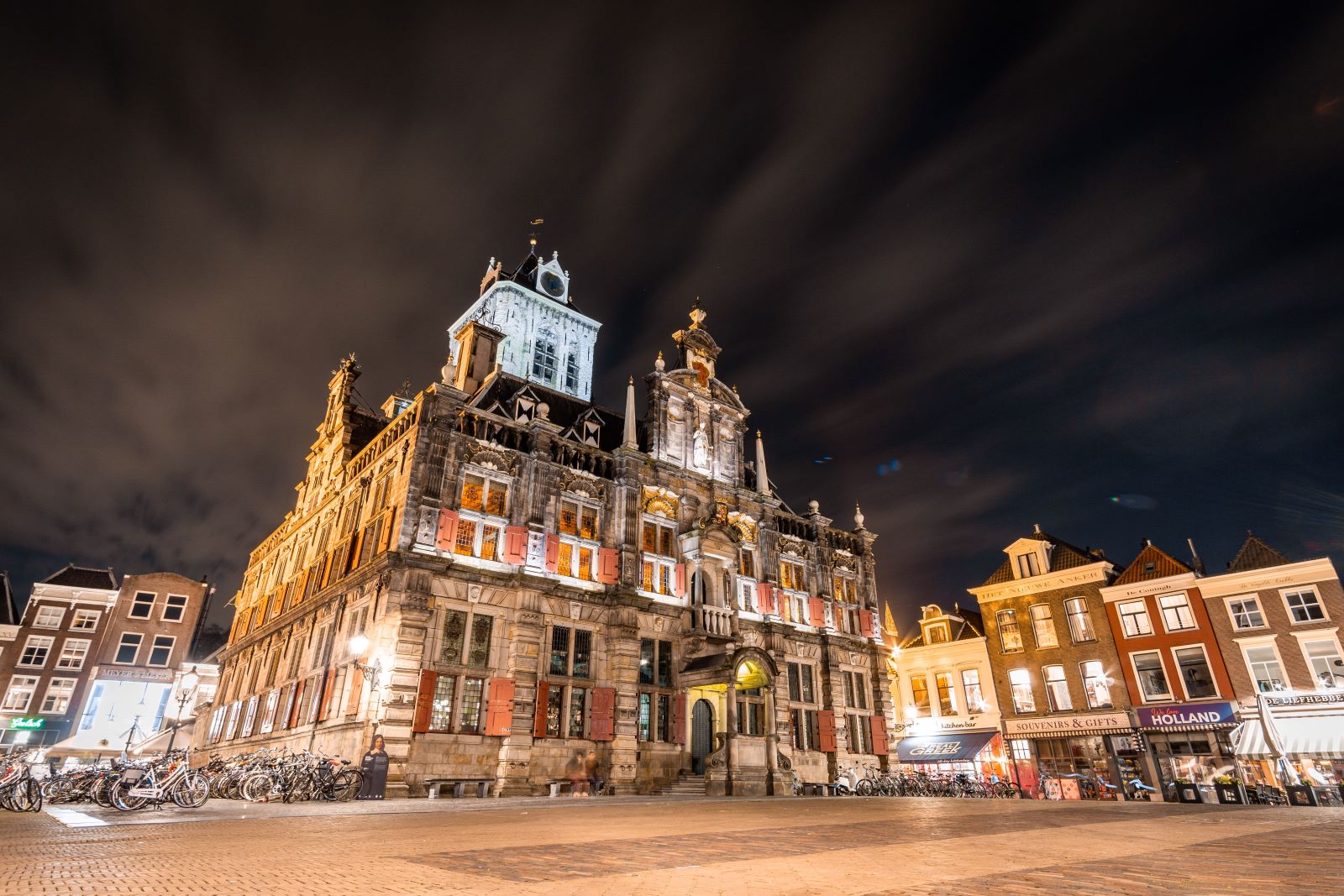Delft’s Municipal Council members want TU Delft to consult them about the plan to grow to 40,000 students spread across several campuses. “Do not forget us.”
Delft city hall. (Photo: Michael Fousert via Unsplash)
TU Delft’s Executive Board announced its plans to grow to 40,000 students earlier this month. The plan is that not all those students come to Delft, but instead are spread across campuses in Rotterdam and The Hague.
The plan is not yet definitive. The Executive Board started an internal consultation round on 15 September that should be finished by mid-November. Although the exact plans for the external consultation are still being worked out, the cvb will at least talk to companies, governments and the universities and medical centres of Rotterdam and Leiden in the near future. The Delft Municipal Council is not named in a summary of ‘relevant external stakeholders’ in a TU Delft memo about the consultation round. This list is apparently not complete, but the Council Members have, in any case, not yet received an invitation. Given their meeting schedules, the political parties do not expect that a meeting can be held before mid-November. That bothers them. Delta phoned the Municipal Council members of the VVD Delft, CDA Delft, GroenLinks Delft, SP Delft and Stip political parties.
“It is good that TU Delft is thinking about the future, but it must do this in consultation with the Municipal Council,” says CDA Delft party leader Frank Visser. “Any plans for growth have consequences for housing, infrastructure and all sorts of other subjects that affect the city of Delft. If you want campuses in The Hague and Rotterdam. for example, you will have to improve the public transport connections between these cities. TU Delft needs us for this.”
Chance of success
GroenLinks party leader Rinske Wessels and Stip Council Member Daylam Dag agree with him. “It is a great goal of TU Delft if the demand for engineers really is that big. But only issuing these plans gleefully to the world is not enough. Every resident of Delft already feels the effects of the strong growth that TU Delft has undergone in the last few years on their daily lives. We Municipal Council members are at the centre of society. We know very well the issues at play in Delft’s neighbourhoods and we are the highest administrative body in the city. So don’t forget us,” says Wessels. Dag adds that “good cooperation between TU Delft and the city is critical for both sides”. “If TU Delft wants these growth plans to succeed, they will also have to take the input from the Municipal Council into account.”
‘TU Delft apparently expects little opposition’
The Municipal Council members primarily want to discuss the effects of the plans on housing in the city and surrounding municipalities. Even if TU Delft does want to branch out to the neighbouring cities of Rotterdam and The Hague, the local political parties expect that the growth plans will have a strong impact on Delft. “We can barely house the students that we now have,” says Wessels, “so how are we going to do that in the future? Housing solutions is one of the most important subjects of discussion for us.”
Miranda Voogt, VVD party member, says that “we must keep the balance between students and residents. TU Delft has a role to play here as it must ensure that the balance does not get lost. As far as we are concerned, more students also means that TU Delft will build more housing on campus.” Stip also wants TU Delft “to take its responsibility in the area of student housing. TU Delft needs to proactively think about solutions to the increasing shortage in student rooms,” says Dag.
Delusions of grandeur
The consultation process will lead to a position to be taken in December, after which, in 2023, talks will be held about the new 2024-2030 Strategic Plan. During a meeting with TU Delft’s Works Council and Student Council on Thursday 22 September Van der Hagen said that TU Delft will also approach the Ministry of Education, Culture and Science in December. “At the end of the year we want to be able to tell the Minister what our vision of the future is and what we will need,” said Van der Hagen. Given the duration of the consultation process, SP party leader Lieke van Rossum wonders how seriously TU Delft is taking the consultation process. “Mid-November is really fast. TU Delft apparently expects little opposition.”
Van Rossum also wonders if TU Delft should even grow. “TU Delft says that ‘society is screaming for engineers’, but where do they get that from? It’s still not clear to me.” She calls the plans ‘purely delusions of grandeur’. “That it suddenly has to grow x number of times and expand to three locations? Universities have the responsibility to teach their students properly and I do not believe that this huge scaling up will do this.”
- TU Delft could have opted for other growth scenarios. Read about them here.
- Also read this interview with Executive Board Chair Tim van der Hagen for his views.
Do you have a question or comment about this article?
a.m.debruijn@tudelft.nl


Comments are closed.